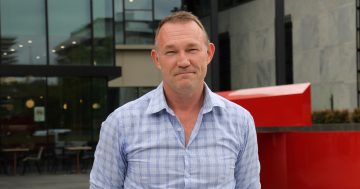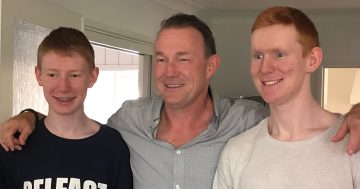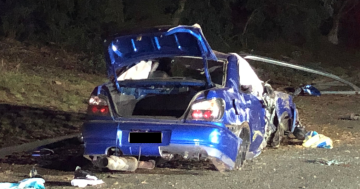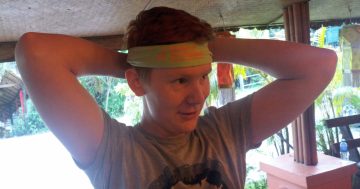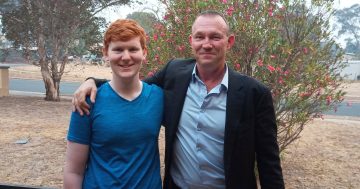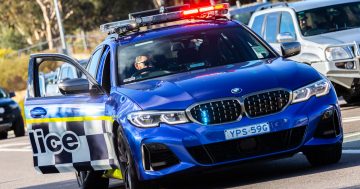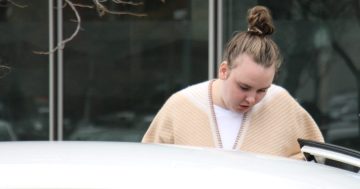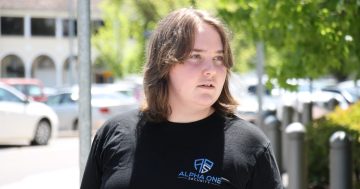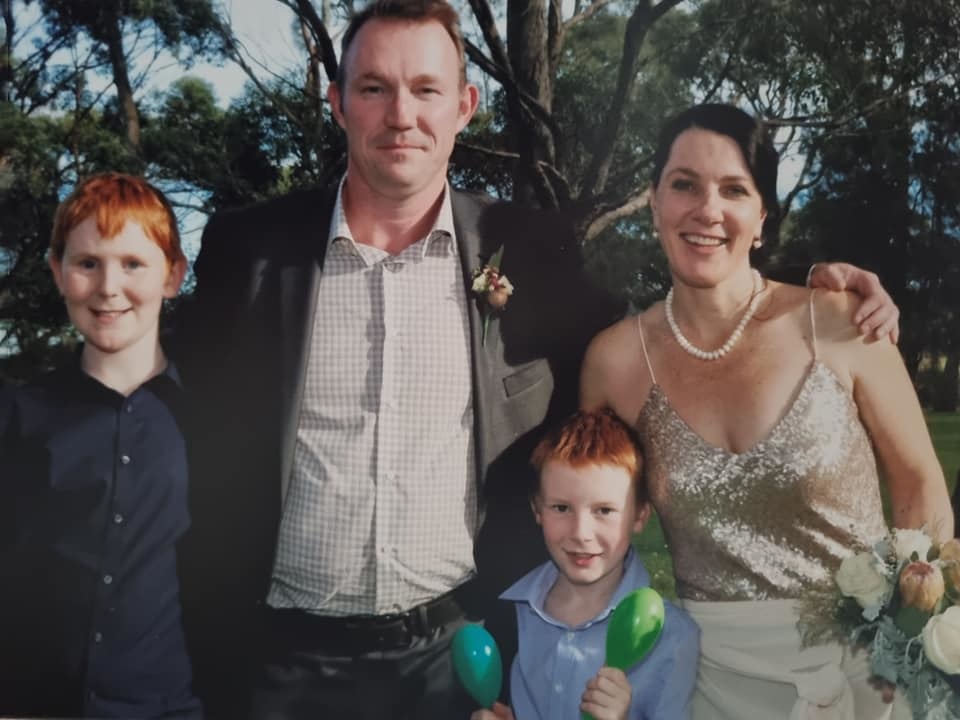
It’s been a year since Matt (left, pictured at his father Tom and stepmother Sarah’s wedding in 2014 with his younger brother Joseph) was killed in a car crash on Hindmarsh Drive. Photo: Supplied.
It’s the anniversary they were never meant to have.
But today (19 May), Tom McLuckie, Sarah Payne and the rest of their families are marking one year since Matthew McLuckie’s car was hit head-on by another vehicle allegedly doing more than 170 km/h on the wrong side of Hindmarsh Drive.
He died in the early hours of 20 May.
“I’m just trying not to think about it. I’m just trying to survive the week,” Matt’s father Tom said.
For Matt’s stepmother Sarah: “For me, this one-year thing has been bigger than Christmas, bigger than his birthday. For me, it’s been a really big thing to dread.
“Still a year later, you walk past a picture and just go … it just takes your breath away. It’s still very, very raw.”
Matt was driving home from work when the collision occurred.
Shakira Adams has been charged and committed to trial over the crash, but police are still searching for a third driver believed to have been involved.
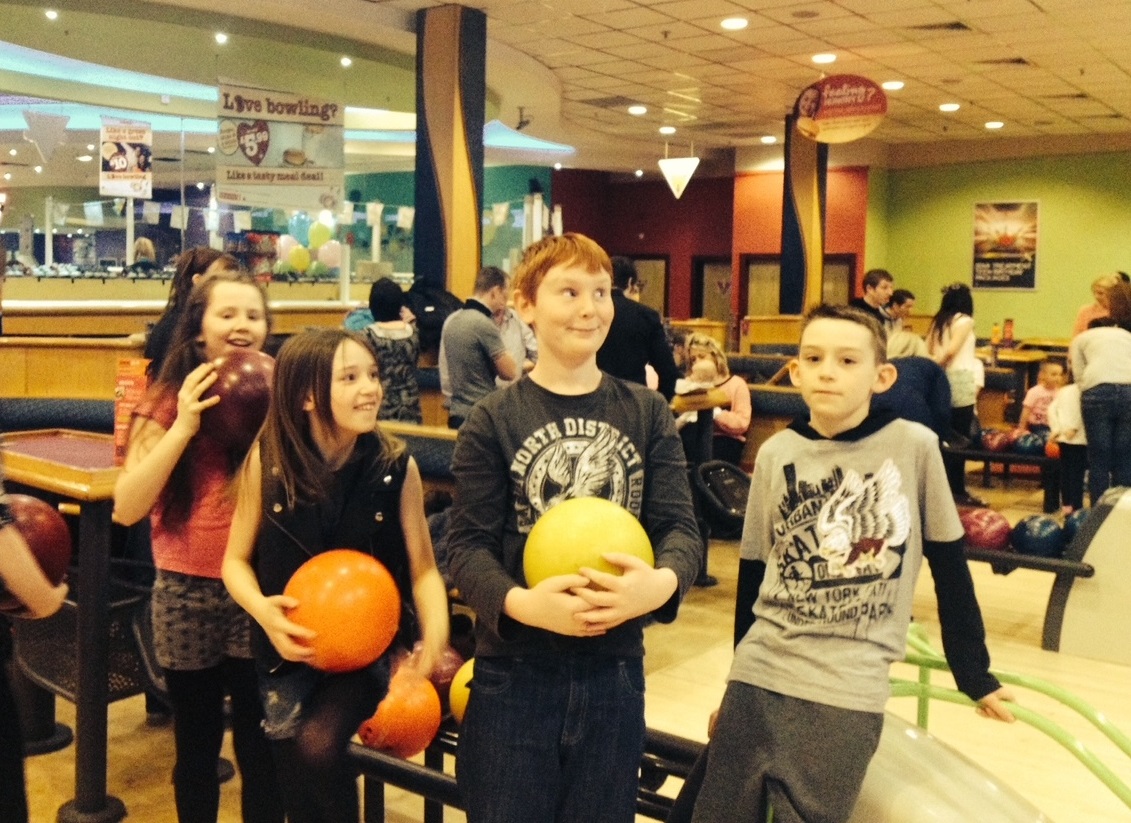
Matt (centre) with his cousins in Scotland. Photo: Supplied
What’s followed has been a channelling of grief by Tom into trying to change how dangerous driving is treated and punished in the ACT.
“It’s an obsession for me,” he said.
“My doctor asked me what I do to relax, and I told him, ‘Well, I go home and review Supreme Court cases for criminal convictions … I’ve read every [published criminal] judgement in the past two years.’
“He said, ‘That’s not healthy for you’, and I said, ‘Probably not’.”
Tom’s petitions and campaigning – including setting up ACTnowforsaferroads – put dangerous driving and safety on Canberra’s roads in the spotlight throughout 2022, leading to the creation of Operation TORIC by ACT Policing to target recidivist offenders, a committee inquiry into dangerous driving, and a promise to set up a law and sentencing advisory council.
“So many people tell us, ‘You’ve made such a difference’,” Sarah said.
“But what’s the evidence? How do you know if we’ve saved a life?”
The mechanisms to change legislation can be frustratingly slow, and reactions at a political level to Tom’s campaigning have been mixed.
“He’s said to me before, ‘Pissing off government officials is the only thing that brings me joy at the moment in life’,” Sarah said.
“There’s a before and after … our preoccupations before, they don’t exist anymore, that life doesn’t exist anymore, at least for the time being.
“We just can’t return to normal life.”
On the recommendations from the dangerous driving inquiry, Tom is hopeful legislative change will follow, particularly the introduction of a ‘vehicular manslaughter’ offence.
But he’s not holding his breath.
“It’s great that you’ve got a standing committee that will do a series of recommendations, but even if the government intends to do something, they’re not very good at executing and following through … it’s a big failing of this government,” Tom said.
He also wants to see Matthew’s Law introduce new sentencing guidelines for serious motor vehicle crimes.
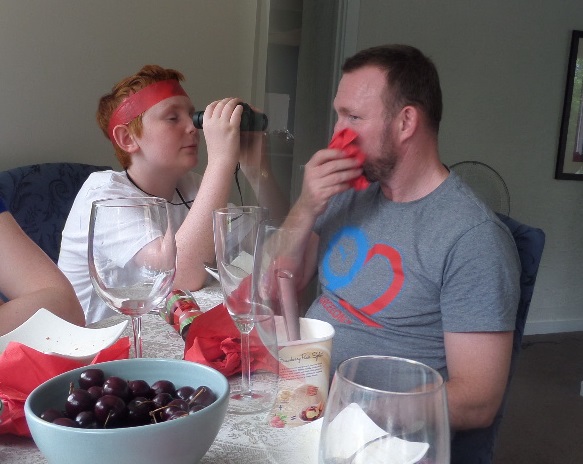
Matt fooling around with his dad Tom one Christmas. Photo: Supplied.
While the pair have welcomed what movement has been made so far in this space, Tom has been left angered by claims the ACT is a tough jurisdiction regarding dangerous driving and other serious offences.
His obsession with reading ACT Supreme Court judgements (he’s now working his way through 101 similar judgements from NSW for comparison) and his job working with data has resulted in a lot of spreadsheets and graphs, which he feels show that while the Territory may have strong sentences as an option, they’re not applied by our legal system.
“You can introduce bits of legislation … but if you’re not going to apply that yardstick in terms of maximum sentences in sentencing … it’s not going to change anything,” Tom said.
“We’re not the leading jurisdiction [on strength of punishment] because even though our maximum sentences are sometimes tougher than other jurisdictions, we never f–king apply them.”
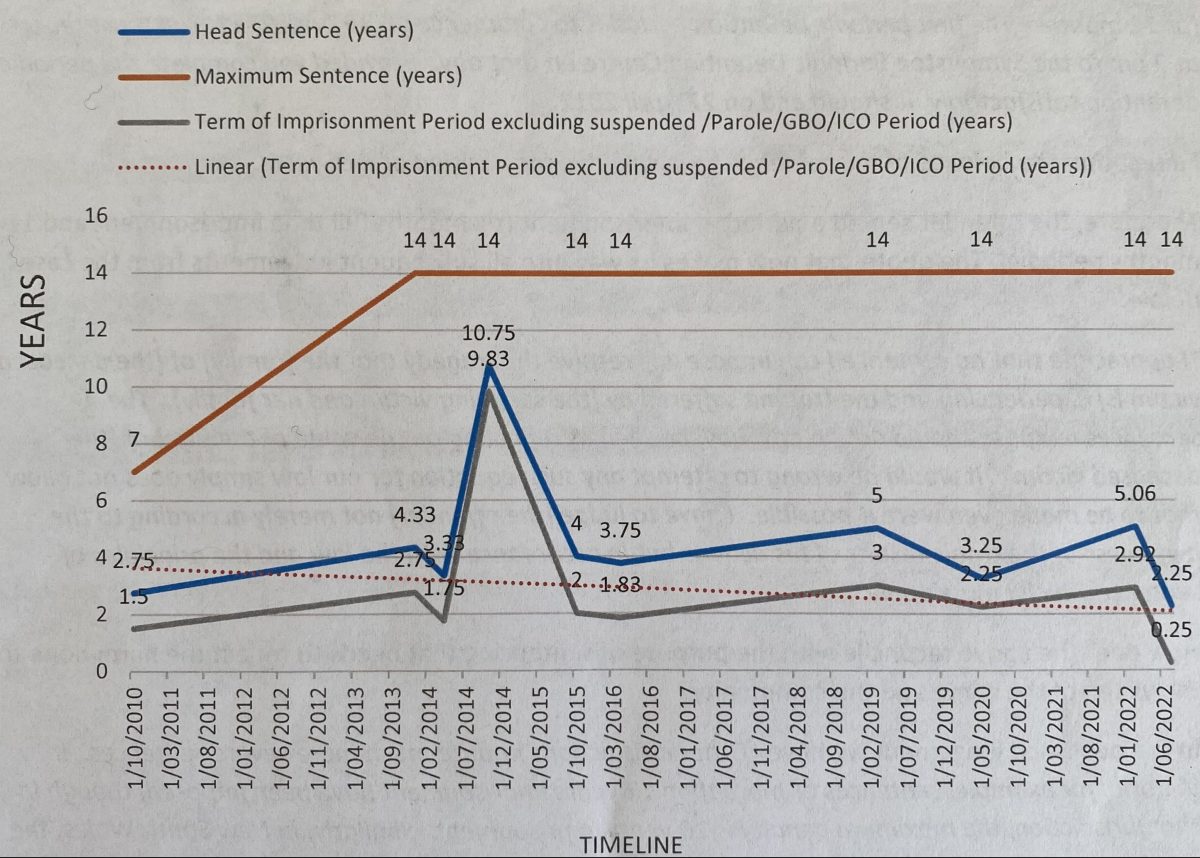
Graph comparing the maximum sentence for culpable driving causing death in the ACT under s 29 (2) of the Crimes Act 1900 (ACT) since 2010. Image: Tom McLuckie.
The ACT’s neutral presumption towards bail is also a sticking point, with Operation TORIC also highlighting the number of people being arrested for multiple breaches of bail conditions and good behaviour orders.
“If intensive corrections orders [ICOs] are working, how come [there’s an example of an alleged crime in Canberra] where the guy was on his 10th breach of an ICO? Surely that’s a bond between you and society, so if you breach it one, two, three times … it shouldn’t be, ‘I get to breach and spend seven days back in custody again and then I’m back out and get to breach it 10 times’,” Tom said.
“Where’s the logic in that? How can that be keeping the community safe?”
But he’s rejected claims he’s pushing for everyone to be locked up and have the key thrown away.
“I actually support the policies [to rehabilitate offenders] … but it’s the cart before the horse every time,” Tom said.
“I’m happy to get involved in the restorative justice conversation, but when you pull apart the [ACT] budget for the last three years, we are not spending money on these programs.”
Tom wants to see more funding for rehabilitative programs, with smaller open prison facilities, which would separate low-risk people from more serious offenders in the AMC and provide them with support around education and apprenticeships.
“Community programs need to be in place. They just don’t exist,” he said.
Tom is also drafting another petition to allow victims of crime to deliver their impact statements to the court without the defence counsel being allowed to vet it and for victims of crime statements to be allowed before the sentencing hearing.
“If we are all equal under the law, then a victim has every right before the decision or judgement to make their rightful statement to the court,” he said.
Both Tom and Sarah acknowledge Matt would have hated the fact many Canberrans now know his name and all the “fuss” that’s been created.
But they also know he wouldn’t want them to stop now.
“Matt had a big sense of social justice. He hated hypocrites, so I think he’d be quite proud,” Tom said.
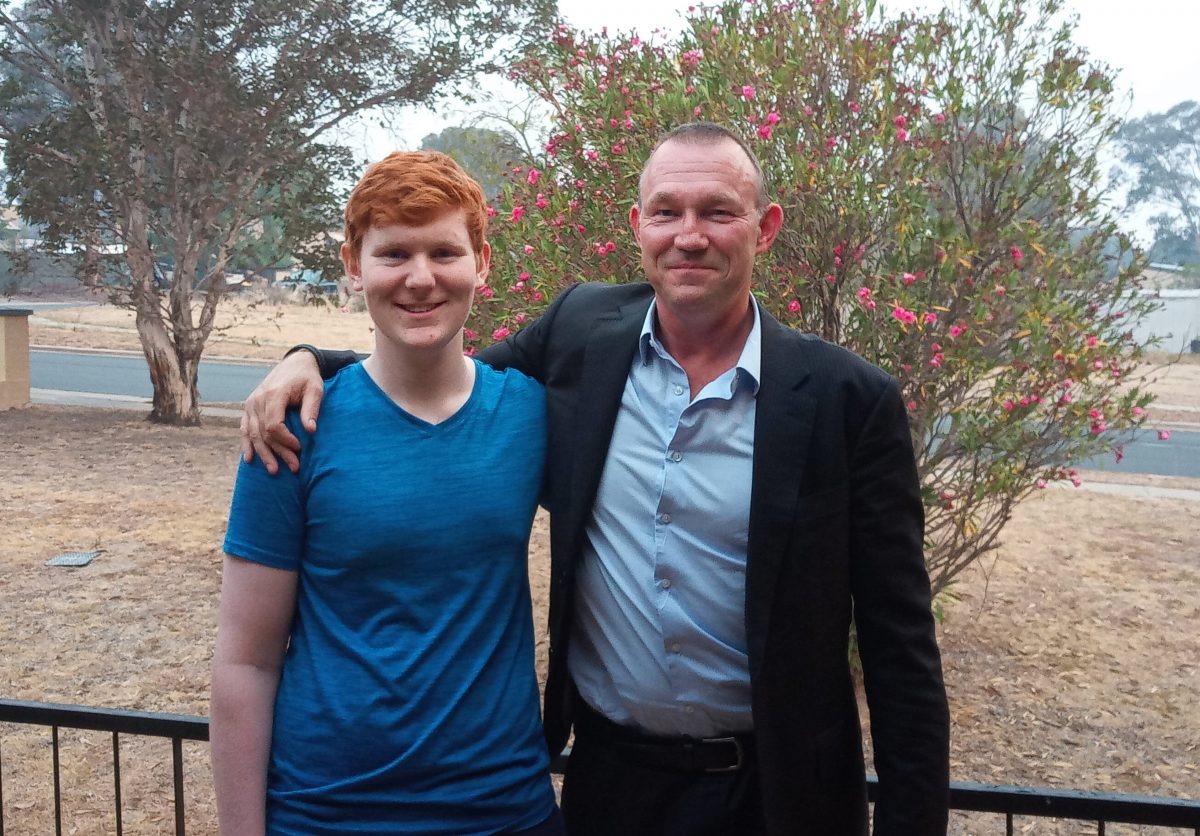
Matthew McLuckie with his father, Tom. Photo: Supplied, ACT Policing.
Besides legislative changes, the family also hopes for other ways to remember Matt.
The ANU gave Matt an honorary Bachelor of Advanced Computing (Honours) – which he had been studying before his death – and have discussed putting up a plaque in his memory in one of the buildings.
The family also wants to erect a memorial for Matt on the road where he was killed.
“A cross or something, but we’re not allowed. We have to get permission to do that,” Sarah said.
“But we’d love to do that.”
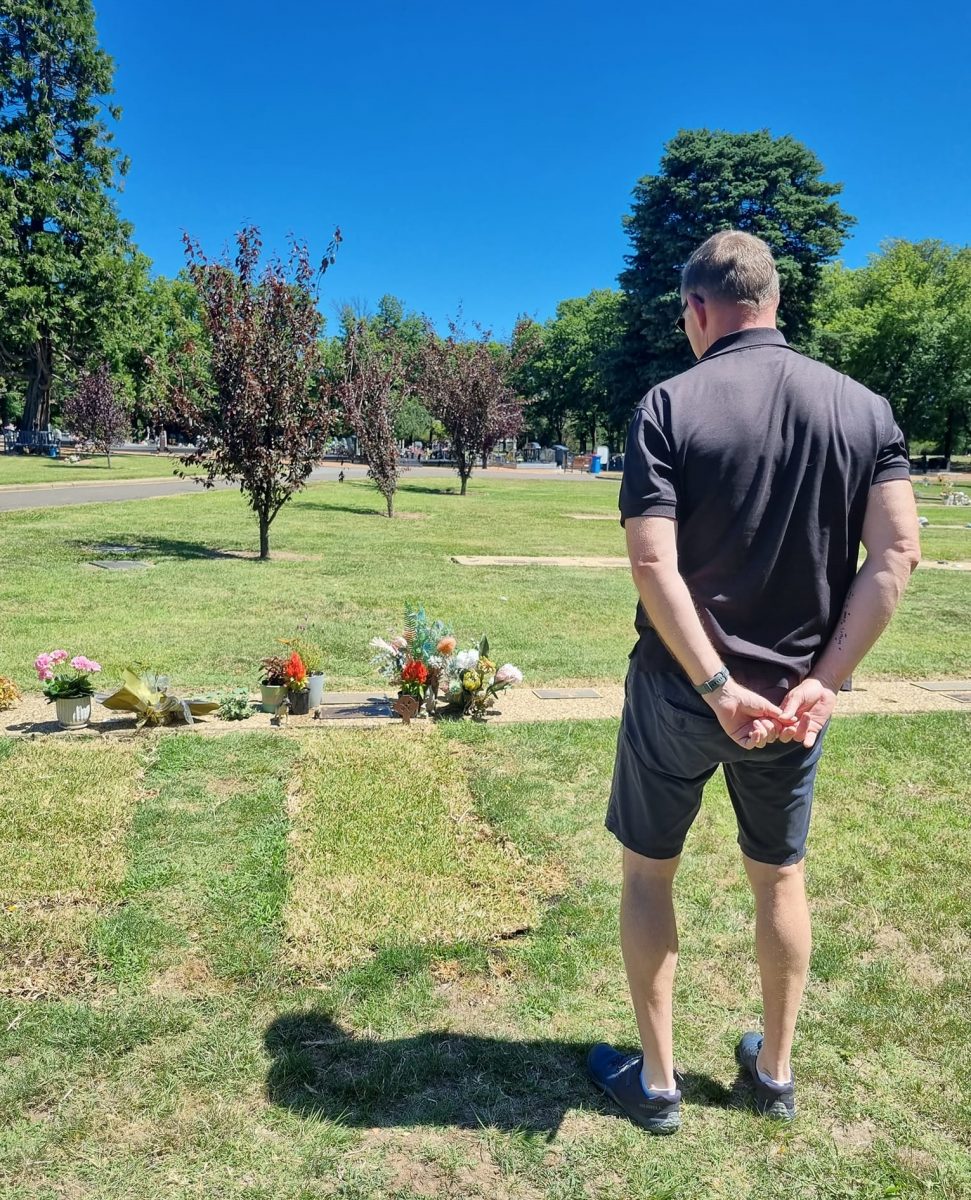
Tom McLuckie visiting his son Matt’s grave in Canberra. Photo: ACTnowforsaferroads.
And as for how the rest of Canberra can help them get through today?
“I personally would just love to think that people will light a candle,” Sarah said.
“That’s a big thing for us and for his mother. She would just be really heartened to know.”












